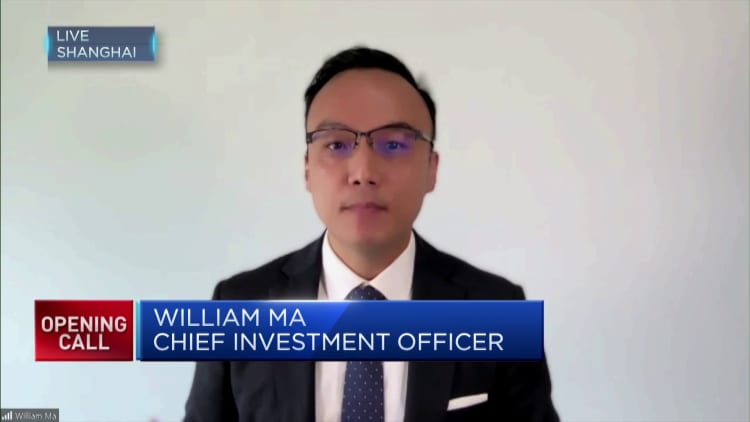In just three years, Beijing-based Well-Link Technologies has built a business on real-time cloud rendering, including helping miHoYo launch the cloud version of the hit game Genshin Impact.
Ina Fassbender | Afp | Getty Images
BEIJING — Singapore state investment firm Temasek is leading a $40 million funding round in a Chinese startup despite a dry spell of deals in the country.
The startup, Well-Link Technologies, counts Chinese tech company Xiaomi and Chinese gaming star miHoYo as investors, according to business database Tianyancha.
related investing news
The $40 million deal announced Monday is an early-stage, or B2 round, led by Temasek and includes existing shareholders Future Capital and VGC.
Temasek confirmed the deal in an email.
The Singapore firm’s publicly disclosed exposure to China has declined over the last two years, from 29% in 2020 to 22% as of this March. As of last week, Temasek had only participated in eight China financing deals, down from 41 last year, according to Dealogic.

In just three years, Beijing-based Well-Link Technologies has built a business on real-time cloud rendering, including helping miHoYo launch the cloud version of the hit game Genshin Impact.
Cloud gaming requires fast processing speed since it relies on remote servers and an internet connection to offer people a smooth gaming experience with just a small file download.
For example, the cloud version of Genshin Impact is just 78.5 megabytes on Apple’s App Store in China, versus the exponentially larger 3.7 gigabytes for the non-cloud version.
Soaring revenue
Well-Link claims its revenue for each of the last two years has grown by a whopping 400% or more, putting the company on track for revenue of several hundred million yuan — the equivalent of tens of millions of U.S. dollars.
CEO Guo Jianjun told reporters the valuation that Temasek offered wasn’t the highest one the startup received. But he said the latest financing round is part of the company’s plans to expand its business overseas.
It was difficult to raise funds during the pandemic, and the startup still has a lot of money, Guo said. But he added that he’s confident in Well-Link’s future development and wants to stick to its fundraising plan.
One of Well-Link’s next steps is encouraging more developers to create games that originate in the cloud.
The company is also exploring how its real-time cloud rendering tech can help with the development of virtual reality and other technologies of the future.
On the issue of regulation, Guo said his startup faces little policy uncertainty, and noted that Well-Link is a not a consumer-facing company.
“From the time of this company’s founding in 2019, our requirement was that we must do compliant, reasonable and legal things,” Guo said in Mandarin, according to a CNBC translation.
“Really excellent and good companies and good content will continue to get [approvals] or support,” he said. “So all we need to do is serve the good content that’s in accordance with policy requirements.”
China’s gaming industry has come under increased regulatory scrutiny in the last 18 months, with tighter restrictions on how long minors can play. Regulators have also been slow to approve many new games by industry giants NetEase and Tencent, although the two companies each received approvals for titles this month.



